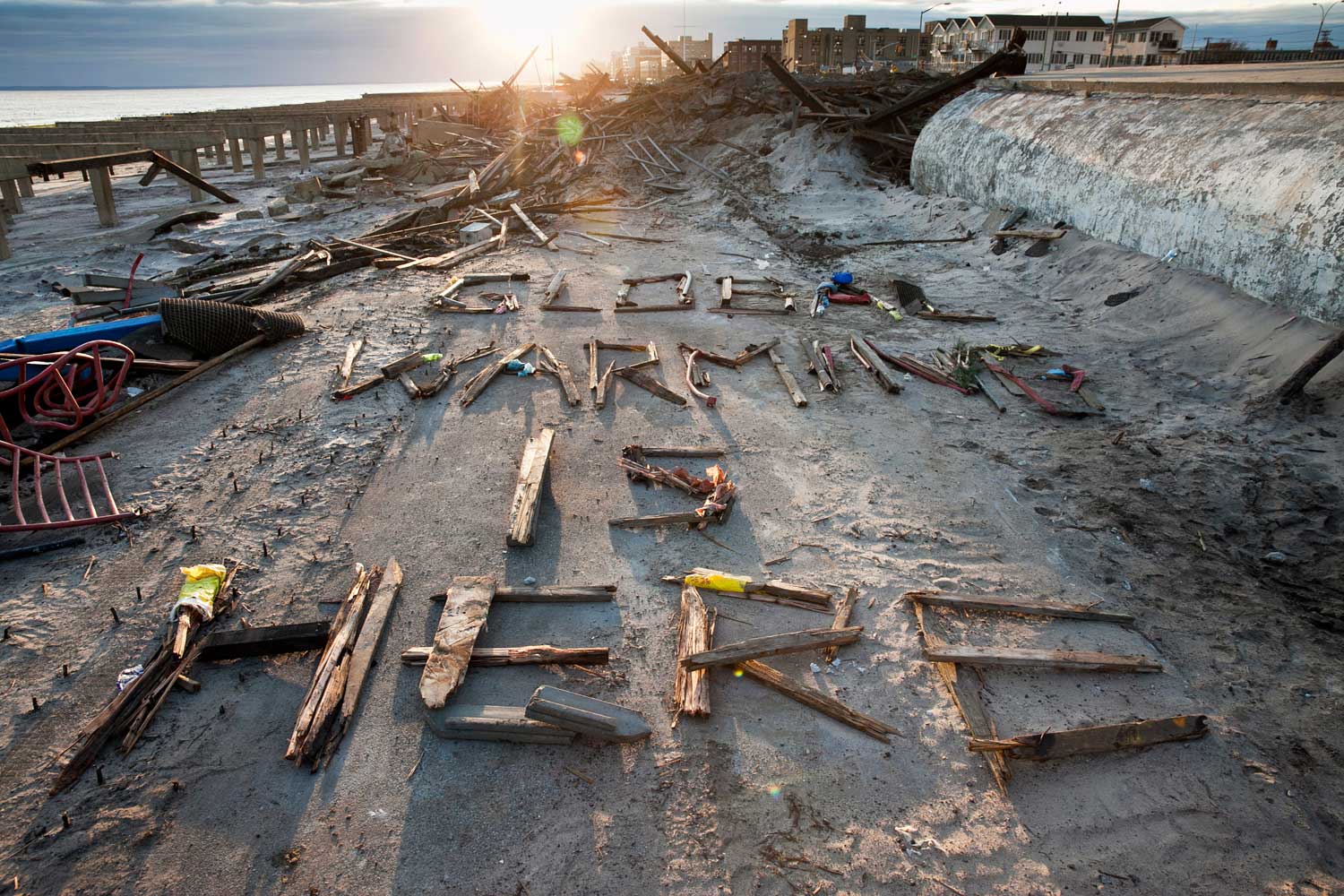Tthe Baffler website has a compelling interview with Ashley Dawson, author of Extreme Cities: The Peril and Promise of Urban Life in the Age of Climate Change, forthcoming from Verso in October. In the interview, Dawson discusses the fallacy of the rhetoric of “resilience” in the face of climate change, as well as the idea that no “natural disaster” is entirely “natural.” She also argues that the emphasis on rebuilding in the aftermath of hurricanes and other disasters should be replaced by an emphasis on organized retreat from zones that are vulnerable to climate devastation. The interview was conducted by Zach Webb. Here’s an excerpt:
Zach Webb: Harvey and Irma could end up costing upwards of $290 billion. If this type of storm ceases to be an anomaly, the project of rebuilding over and over will obviously become untenable. In the book, you broach the somewhat taboo subject of retreat.
Ashley Dawson: There are all different kinds of retreat. You can retreat vertically by raising houses. You can retreat from particular geographical parts of the city that are disproportionately affected by flooding. But, as you suggest, Harvey and Irma also raise questions about retreating from entire cities and regions that are particularly hard hit by climate chaos.
One of the big problems is that after Tropical Storm Allison hit Houston in 2001, there were many houses that were left in the one-hundred-year floodplain, and funding was not provided for people to be able to move out of those areas. It would make sense to give people buyouts to be able to move out of those areas—as a community, not necessarily as individuals.
But such buyout policies fly in the face of the macho American idea that we can build it back—to use the language of the New York State post-Sandy rebuilding plan. When folks in Staten Island fought to be able to move away from coastlines after Sandy, a few communities were successful in getting state funding, but most of them were shut down. It’s still very much a taboo subject …
The people of the Global South are really not responsible for climate change, but they are being devastated by it. Millions of people have been displaced in India and Bangladesh over the last month by historical flooding. Where are those people going to go? Are we going to close our doors and refuse to allow migrants in and give in to the kind of heightened racism that we see with the Trump administration and which is tearing Europe apart?
Everything we’ve taken for granted in the modern epoch is shifting; the ground is changing under our feet. Nation states and forms of geopolitics that we assume to be in place are all going to be reconfigured—if not within our generation than within the next. We need to have antiracist climate justice arguments and policy proposals for how deal with it all. And of course at the very bottom of it, as I argue in my book, we need to talk about ending capitalism, this system which is based on infinite expansion on a finite planet and is leading to ecocide.
Image: Hurricane Sandy aftermath in New York. Via natandvir.com.
